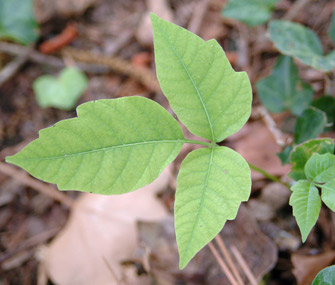What Pet Owners Should Know About Poison Ivy, Oak and Sumac
Published on August 23, 2016
Skip To

All three plants contain urushiol, an oil that can cause an itchy rash and blisters in people, according to the U.S. Food and Drug Administration.
How Are Pets Affected?
Urushiol oil does not appear to cause serious allergic reactions in cats or dogs. Their coats tend to protect them from the oil, so while it’s uncommon for pets to have a reaction to it, it’s probably not impossible, according to veterinarian Dr. Jenna Ashton, an internist at VRCC Veterinary Specialty and Emergency Hospital in Englewood, Colo. A skin reaction would most likely occur in an area where there’s no hair or in hairless breeds with more exposed skin.The plants are nontoxic to dogs and cats, according to the ASPCA Animal Control Center. If your pet accidentally eats part of a plant, he may experience a mild upset stomach, says Dr. Ashton.
Can Pets Spread It to People?
While dogs and cats don’t tend to break out in itchy rashes, people can develop rashes and blisters by being exposed to the plant oil on their pets.In fact, Vetstreet.com’s marketing director, Andrea Serio, recently came down with poison ivy after coming into contact with her Pit Bull, Baby. Serio said Baby occasionally gets into the weeds in her backyard, where there’s a little poison ivy. Because Serio lets Baby sleep in her bed, she thinks that may be how she was exposed to the plant oil. Once she realized that was the case, she bathed Baby and her other Pit Bull, Mia, and washed their collars.
Take the Right Precautions
Fortunately, there are measures you can take to help keep your pet from coming in contact with these allergens and passing them to you. For one, it’s important to know what these plants look like so you can avoid them. For more information about recognizing and avoiding these plants, which tend to flourish in the summer but can pose a danger year round, check out this video from the FDA:https://www.youtube.com/watch?v=CEBpYdgBALgOnce you know what the plants look like, it’s a good idea to remove them from your yard, says veterinarian Dr. Mary Fuller, who worked for many years at a small animal practice in Minnesota. You should also keep cats indoors and keep dogs on a leash when walking outside to help prevent them from coming into contact with the plants.
If your pet does get into poison ivy, oak or sumac, you should bathe him with a pet shampoo, possibly choosing one that contains oatmeal, making sure to wear gloves, Dr. Fuller says. Additionally, washing your pet’s collar and leash can help prevent the oils from being transferred to you.
But remember, itchiness and rashes in pets can be caused by many things, so if you’re concerned about your dog or cat, call your veterinarian.
More on Vetstreet:
- Why Your Dog May Have Itchy Skin and How You Can Help Him
- 6 Ways Your Dog Shows You Love
- 5 Odd Cat Behaviors Explained
- Ways to Strengthen Your Bond With Your Dog
- Why Every Cat and Dog Owner Should Get Certified in Pet CPR





